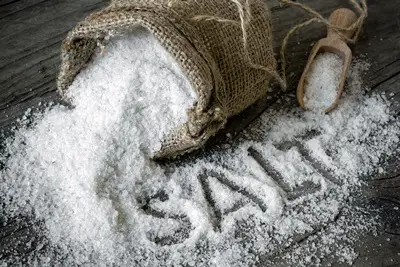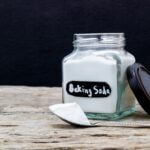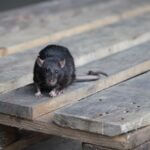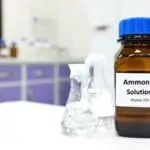Salt is used to kill rats, as it can dehydrate any living creature when consumed in sufficiently large quantities. If a rat ingests enough salt, it draws water/moisture from its body.
Salt (sodium chloride) can cause severe dehydration, killing rats. If salt is ingested in large amounts, it’ll lead to organ damage, such as kidney failure.
This can kill a rat within days, especially without sufficient water. However, salt must be combined with something more enticing to work effectively.
To overcome this problem, mix salt with detergent, flour, and sugar to create an enticing paste. This combination of ingredients will be far more palatable but have deadly consequences for rats.
Do Rats Eat Salt?
It’s rare for wild rats to consume sodium chloride besides what’s naturally contained in foods.
According to the American Psychological Association, their salt intake is minimal, as they get all the sodium they need through food and don’t seek additional salt deposits.
Of course, rats are scavengers and will feed on almost any organic material, from food scraps to animal excrement. So, rats will eat salt if tasty food is mixed with it.
When given a choice, rats prefer eating unsalted meals rather than heavily salted ones. Salt isn’t a large part of their natural diet, and when consumed excessively, it can have lethal consequences.
Is Salt Bad For Rats?
Too much sodium chloride can be toxic.
According to the Journal of the American Heart Association, at a molecular level, rats need just 0.03% to 0.05% sodium daily to sustain healthy growth and development.
Anything more than this figure can adversely affect a rat’s internal organs and be fatal. An excessive sodium intake causes dehydration and leads to high blood pressure in rats.
Also, a high salt intake affects various physiological effects, including:
- Renin secretion.
- Vascular adaptation.
- Plasma aldosterone.
According to Eastern Virginia Medical School, a high salt intake can induce hypertension and cause oxidative stress. Too much salt accelerates the development of hypertension, leading to diabetes.
Excess salt induces an incurable condition in rats called kidney glomerulosclerosis. This causes inflammation of the kidneys, increasing the chances of the affected rat(s) dying from kidney failure.
The most common effect of excess salt in rats is dehydration. Rats that ingest too much salt will become dehydrated and die if they don’t replenish the lost water.
So, using salt to kill rats can work, but they’d need to consume a lot of salt. That’s why it needs to be combined with foods that rats love if they’re to consume a sufficient quantity.
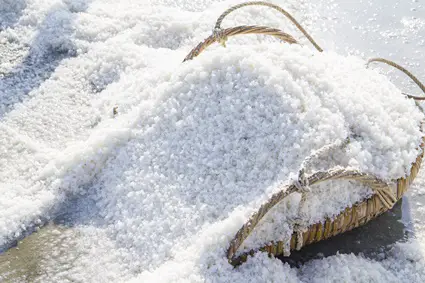
Does Salt Kill Rats?
As stated, you must mix salt with bait and encourage rats to consume a sufficient quantity.
So, it’s only semi-effective as a pest control agent. Rats know that large quantities of salt can be deadly. Even if you mask it with other flavors, sodium chloride is so distinctive that it’s hard to disguise.
How To Get Rid Of Rats in The Home with Salt?
The process of killing rats requires patience, and this starts with choosing a salt:
- Table salt: Contains sodium chloride, which can be toxic to rats in large amounts
- Epsom salt: Contains magnesium sulfate that has an unpleasant taste.
Once you’ve made your selection, here’s how to set up rat bait traps with salt:
- Search your home for any rat holes and nests
- Plug and obstruct any gaps so rats can’t escape to fetch other food
- Mix large amounts of salt with foods that rats enjoy (like peanut butter) as a lure
- Place the formulated bait near their nests and along paths that rats commonly frequent
- Restrict open sources of water in the home to prevent rats from rehydrating
- Store all foods appropriately in airtight metal or glass containers
By limiting access to food and water, rats will have little choice but to eat the salted bait. The excess sodium ingested will target their organs, leading to death within 2-3 days.
Rats can survive for about four consecutive days without food, so it’ll take time before they’re desperate enough. Once they eat the bait, it’ll take more time before dehydration and organ failure occur.
Can Detergent And Salt Kill Rats?
When detergent is mixed with salt, the formulation becomes a lethal, homemade rat poison. Laundry detergent is more palatable, disguising the taste of salt.
Laundry detergent is deadly in its own right, containing potent compounds such as:
- Bleach
- Phosphate
- Sodium carbonate
- Sulfonate
Killing rats with salt and detergent is a straightforward process, but you’ll need:
- Table salt
- Laundry detergent
- Flour
- Sugar
Once you have the ingredients, mix them:
- Wear disposable latex gloves.
- Fill an empty tin with a sizeable amount of salt, detergent, flour, and sugar.
- Add water to the content and mix the ingredients thoroughly to make a thick paste.
- Apply the paste to areas where rats frequent and hide, such as near garbage cans.
- Wait for the rats to eat it and perish over the coming days.
Is Salt Poisonous To Rats?
Salt isn’t poisonous to rats in normal quantities. If that were the case, rats would die instantly after eating salted foods, such as those rats seek out in our homes, such as cured meats and cold cuts.
From salted peanuts to potato crisps, rats eat almost anything that contains salt without causing harm. However, if given a choice, rats would prefer a low-salt diet.
If a rat encountered a small pile of salt, it wouldn’t want to eat it. Ingesting too much sodium causes the body to lose water quickly, becoming dehydrated. It also overwhelms the organs responsible for flushing toxins and eventually ceases function.
Using large amounts of salt mixed with food as bait can kill rats. However, if you have a significant infestation, you’ll unlikely get enough rats to eat the bait to reduce a fast-breeding population. Consequently, it must be paired with other proven rodent control methods.

